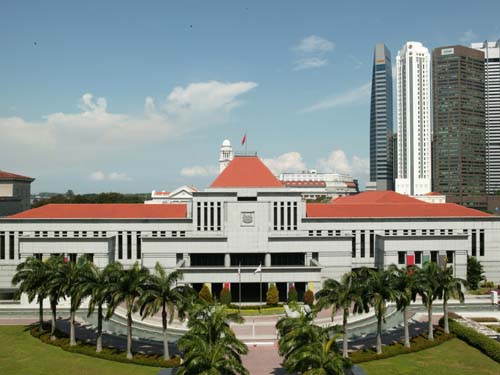Why only tell half the story – rich pay more, but what about the rest?
I refer to the article “Personal income tax: Total paid by top 20% doubled in last decade” (Straits Times, Jan 10).
It states that “The top 20 per cent of taxpayers here paid a total of $9.8 billion in personal income tax in the 2017 year of assessment
This figure is more than double the $4.3 billion collected from these top taxpayers a decade earlier, in the 2007 year of assessment.
In a written reply to a parliamentary question … attributed the increase in tax contributions to both a rise in the number of such taxpayers, and higher amounts collected from each of them on average.
He added that this was generally seen across all age groups within the top 20 per cent.
There were about 2.4 million people who had their income assessed last year. Based on figures from the Inland Revenue Authority of Singapore from the 2016 year of assessment, these taxpayers in the top 20 per cent had a chargeable income of more than $80,000.
The 20,877 top earners among them, who had a chargeable income of more than $500,000, contributed $3.7 billion in taxes. They made up just 1.2 per cent of all taxpayers in that year.
Taxation is expected to be a hot issue this year, with Prime Minister Lee Hsien Loong having signalled an impending tax hike.”
As one of my friends said – “sometimes it may make you wonder whether some questions asked in Parliament may be akin to or kind of like “singing the same song”.
With all the recent rhetoric about the need to raise taxes – what’s the point of getting in a sense – a “half the story” answer?
Isn’t it kind of like obvious or as some may say a “no brainer” that the rich would surely have paid more taxes compared to a decade ago?
What about the rest of the 80 per cent of Singaporeans? Did they pay more too – relative to the rich – relative to the increase in their incomes. assets and liabilities?
As to “taxes would need to rise to support growing infrastructure and social spending. Although he did not give details about the taxes that will be raised and when it will happen, some analysts have suggested that the goods and services tax, which is now 7 per cent, could be raised to 8 to 10 per cent” – why increase a “regressive” tax that impacts the middle and lower-income relatively more?
What about the last 50 years of Budget surpluses?
50 years of the Singapore Budget
In this connection, I added up the Budget surpluses/deficits from 1997 to 2016 using a chart in the Straits Times (5o years of the Singapore Budget).
Net Budget surpluses from 1997 to 2016 – $31.1b?
The total Budget surpluses and deficits were $44.5 and -$13.4 billion, respectively.
This means that the net Budget surpluses from 1997 to 2016 were $31.1 billion ($44.5 – $13.4).
Includes Transfers to Trust and Endowment Funds?
As these figures include Transfers to Trust and Endowment Funds which under IMF fiscal reporting guidelines should not be charged as one-time expenditures in the Budget – the Budget surpluses may actually be much higher.
FY2016 – Budget surplus $5.2 or $8.8b?
For example, if we add back the Trust and Endowment Funds of $3.6 billion – the Budget surplus would rise from $5.2 billion to $8.8 billion in FY2016.
Budget Cash Surplus from 2005 to 2014 – $190b?
According to the Department of Statistics’ Monthly Digest of Statistics – the total Budget Cash Surplus/Deficit (M130611 – Government Finance, Annual) from 2005 to 2014 was $190 billion (I added up the yearly figures).
So, if we follow the full IMF fiscal reporting guidelines – does it mean that our Budget Cash Surpluses from 2005 to 2014 was about a whopping $190 billion?
By the way, are we the country with the highest historical Budget surpluses per capita, in the world?
Leong Sze Hian
P.S. You may like to watch this 50 seconds video on the Budget surpluses
